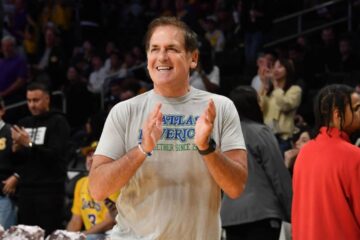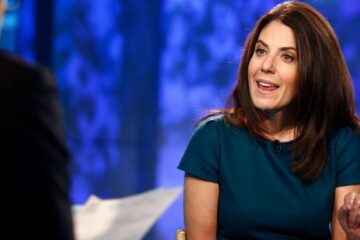Many experts now anticipate a soft landing for the economy, with the Federal Reserve able to calm inflation without causing a recession.
GDP growth registered 1.3% annualized in the first quarter, and the Atlanta Fed’s forecasting tool indicates 3% growth for the second quarter.
A slowdown in consumer spending may lead to trouble for the economy.
On the inflation front, consumer prices climbed 3.3% in the 12 months through May, down from a 3.4% increase in April.
If inflation continues to ease — it actually rebounded early this year — the Fed can cut interest rates to keep the economy afloat.
Interest-rate futures indicate a 64% possibility that the Fed will lower rates by September, according to CME’s FedWatch tool. And futures point to a 63% chance of at least two rate decreases by year-end.
As for the stock market, it already has priced in a soft landing, Michael Wilson, chief investment officer at Morgan Stanley, told Bloomberg. The S&P 500 has soared 14% so far this year.
Fed Chair Jerome Powell has indicated that the economy is enjoying a soft landing so far, after the Fed ratcheted rates higher in 2022-23.
“These dynamics [falling inflation and economic buoyancy] can continue as long as they continue,” he said after the Fed’s meeting earlier this month.
Related: Mohamed El-Erian has blunt words for the Fed on interest rates
“We’ve got a good strong labor market. We think we’ve been making progress toward the price-stability goal. Is our policy stance about right? We think yes.”
In the labor market, nonfarm payrolls jumped 272,000 in May, more than 50% above economists’ forecast of 180,000.
Paul Krugman’s view of the economy
But not everyone has a sunny view of the economy. The Nobel laureate economist Paul Krugman is “beginning to get a bit worried about an economic slowdown,” he wrote in The New York Times.
“There’s nothing out there that screams imminent recession, but there are straws in the wind.”
He pointed to slowdowns in consumer spending and manufacturing.
Related: Former Treasury official unveils startling interest rate prediction
Inflation-adjusted consumer spending dipped 0.1% in April. The manufacturing purchasing managers index registered 48.7% in May, down from 49.2% in April
“Again, we’re not talking alarm bells yet, but the balance of risks has clearly shifted,” Krugman said.
“So it’s time to stop obsessing about inflation, which increasingly looks like yesterday’s problem, and start worrying about the possibility of a recession.”
High interest rates might finally erode the economy’s strength, he said. (High rates deter companies from investing and consumers from buying.)
Nuveen CIO Saira Malik’s take on the economy
Saira Malik, chief investment officer of money manager Nuveen, goes further than Krugman.
“Recession is a matter of when, not if,” she told Yahoo. One will probably begin in the fourth quarter this year or the first quarter next year, Malik said.
She, too, cited the weakening of consumer spending, noting that foot traffic at retailers is starting to slow.
More Economic Analysis:
Stocks’ record setting rally may be on fumesConsumers tapping out amid sticky inflation and slowing job marketFed rate-cut timing shifts after retail sales data
The labor market is a concern, too, though not as much as the consumer sector, Malik said. While payroll numbers are strong, unemployment claims are almost at cyclical highs, she pointed out.
The four-week moving average of initial jobless claims totaled 232,750 as of June 15, up from 227,250 a week earlier.
Turning to the Fed, Malik says it will “eventually … cut rates, but not enough to stave off recession.”
Related: Veteran fund manager picks favorite stocks for 2024


